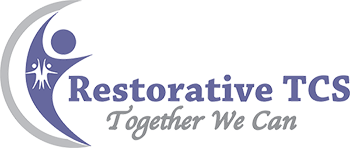
Training
Let's Start the Journey Together
Our training teaching participants a variety of ways restorative practices can be used in their daily interactions from building relationships to addressing concerns and using Circles in a variety of ways.
Our experiential training and workshops makes it easy for participants to unleash their ingenuity and creativity while gaining multiple opportunities for individual reflection and collaboration.
Participants are encouraged to do the self and collective work needed to co-create cultures where everyone feels seen, heard, valued and fairly held accountable.
16-Hour Training
Participants will have dedicated time to learn about restorative practices with fellow leaders while building community.
Participants will learn what restorative leadership is and what it looks like in their daily interactions.
Restorative leader are intentional about using practices that are supportive of ourselves and others while also holding ourselves and others accountable in respectful and caring ways.
This training not only provides dedicated time for participants to learn what it means to be restorative and what it looks like in their role. They also get to practice so they leaving feeling ready to use these practices in authentic ways and empowered.
Participants will learn what it means to be restorative, how to have restorative conversations to build, maintain and repair relationships, and how to use Circles within their current group activities. For examples, math teachers leave with ways they can use Circles when teaching math.
During this training, participants learn how to use Circles to have difficult conversations, problem-solve, and repair relationships. Participants also learn how to strategically implement these practices within their organization.
Participants must attend the administrators & organizational leaders or the educators and staff from community agencies training prior to attending this training.
Workshops
The restorative practices overview provides participants with the information needed to decide if they want to begin the journey of growing restorative practices in their school or organization.
The overview ends with participants completing an anonymous survey used to determine if staff are ready for training.
Workshops are recommended after training. Topics are identified based on need. Previous workshop topics include:
- Co-creating or updating shared agreements
- Having difficult conversations
- Restorative ways of addressing behavioral concerns
- Using restorative practices to address biases
